Reposted from RSC Americas Blog, words by Marika Wieliczko.
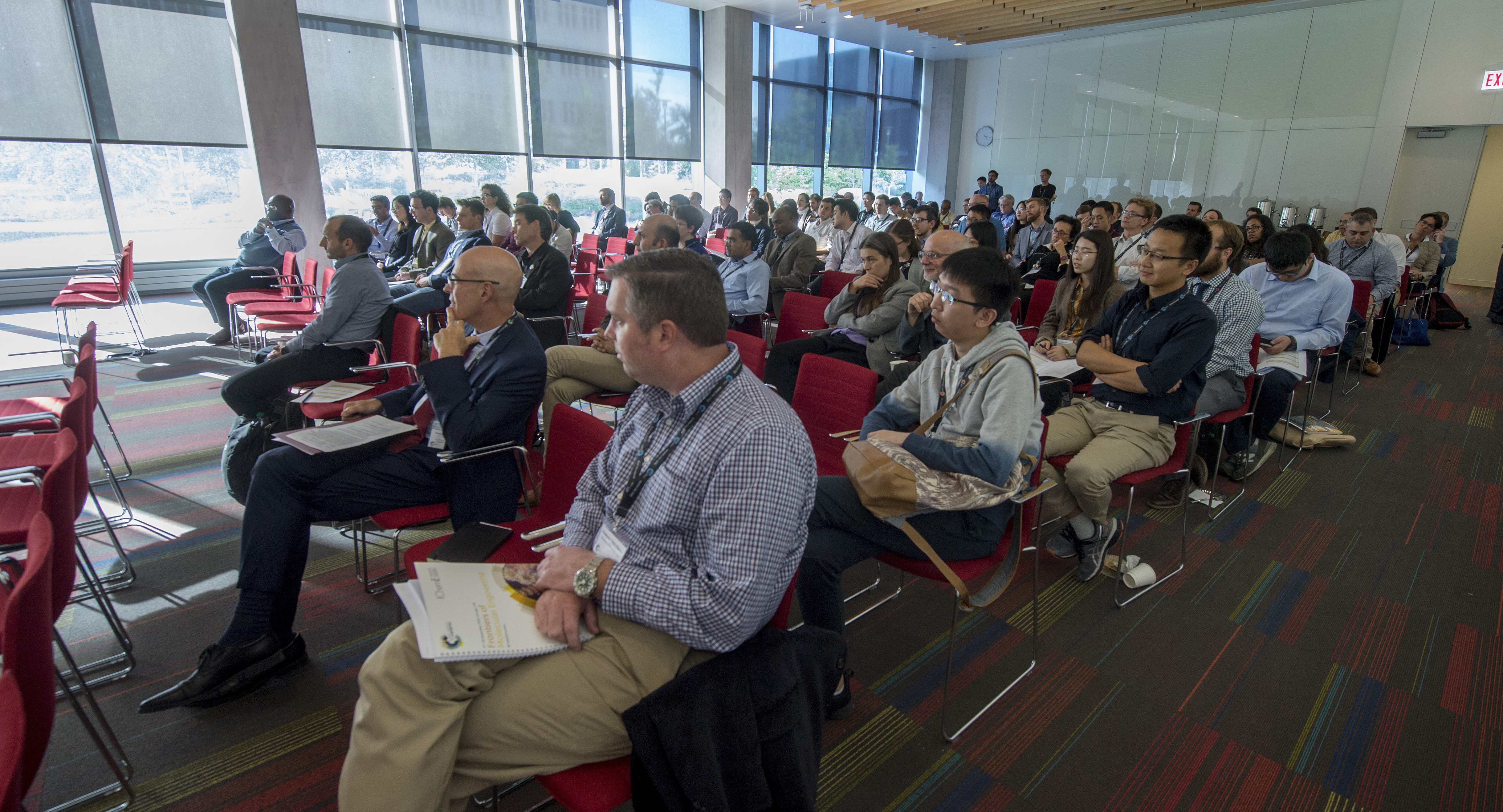
CHICAGO, IL – SEPTEMBER 27: The University of Chicago Institute for Molecular Engineering in partnership with the National Science Foundation, The Institution of Chemical Engineers and Molecular Systems Design & Engineering hosted “Frontiers of Molecular Engineering” at the University of Chicago in Chicago, Illinois. (Photo credit: Randy Belice for the University of Chicago.) © Institute for Molecular Engineering at the University of Chicago.
Beyond publishing high-quality journals, The Royal Society of Chemistry aims to bring together communities of researchers from all stages of their careers and from around the world for active exchange of ideas. The inaugural Frontiers of Molecular Engineering Symposium was organized by members of the Molecular Systems Design & Engineering (MSDE) team and hosted by the Institute for Molecular Engineering (IME) at the University of Chicago. This first-of-its-kind symposium brought together world leaders in the emerging field of molecular engineering to share their latest work and to discuss key challenges to innovation.
Developing a diverse, interdisciplinary community
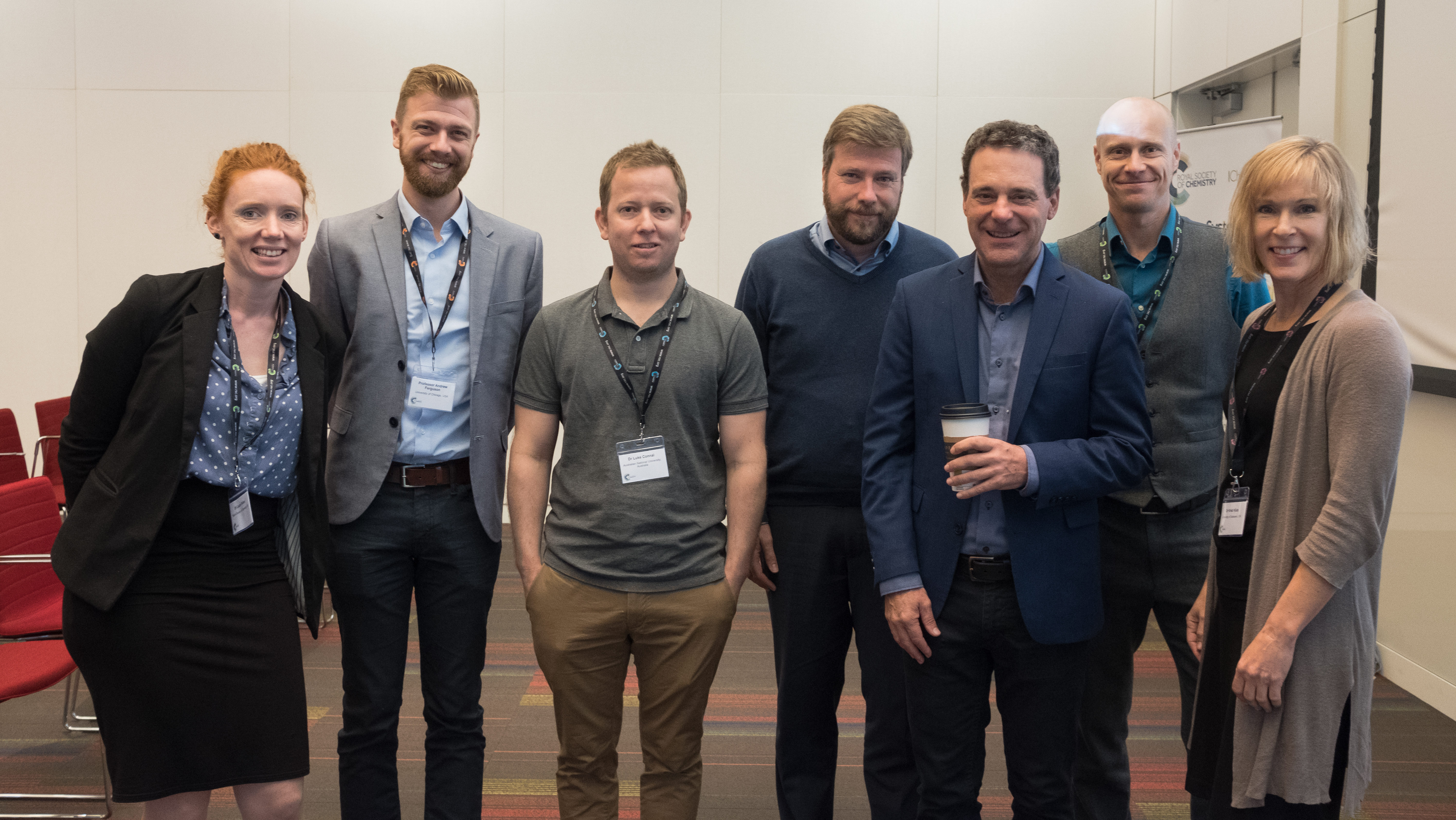
Left to right: Laura Fisher, Andy Ferguson, Luke Connal, Marcus Müller, Patrick Stayton, Neil Hammond, and Kristi Kiick. (Photo credit: Randy Belice for the University of Chicago.) © Institute for Molecular Engineering at the University of Chicago
As a joint venture between the Royal Society of Chemistry and the Institution of Chemical Engineers (IChemE), MSDE is a truly interdisciplinary, first-of-its kind journal, crossing the boundary between chemistry and chemical engineering. Dr. Neil Hammond, Executive Editor, and Dr. Laura Fisher, Deputy Editor of MSDE, work with the Editorial Board to develop the journal and the community that it caters to – spanning experimental, theoretical, and computational research in physics, biology, chemistry, engineering, and materials science, with the international Editorial Board reflecting the diversity of the field. Over the course of the two-day event, 25 researchers convened to discuss their discoveries and the future of molecular engineering with 120 attendees that included researchers from all levels, from graduate students to experienced research scientists. Speakers came from institutions across the globe, including the University of Chicago, Argonne National Laboratory, Stanford University, Massachusetts Institute of Technology, University of California at Berkeley, Australian National University, Imperial College London, and Collège de France. Along with Laura and Neil, almost all of the Editorial Board members attended and contributed to the success of the symposium, including Juan de Pablo, Claire Adjiman, Luke Connal, Andrew de Mello, Andrew Ferguson, Samson Jenekhe, Kristi Kiick and Patrick Stayton.
“Advances in our ability to manipulate molecules have led to the concept of using molecular principles to engineer solutions to societal problems.”
The Chair of the Editorial Board, Juan de Pablo, Liew Family Professor in Molecular Engineering at IME and vice president of national laboratories at UChicago, opened the symposium, noting that advances in the ability to manipulate molecules “has led to the concept of using molecular principles to engineer solutions to societal challenges.” The conference included a panel discussion focused on how molecular engineering is taught and researched at three of the key molecular engineering institutes: Board Members Claire Adjiman, Professor of Chemical Engineering and co-Director of the Institute for Molecular Science and Engineering at Imperial College London, and Patrick Stayton, Bioengineering Distinguished Term Professor and Director of the Molecular Engineering and Sciences Institute at the University of Washington, joined Matthew Tirrell, dean and founding Pritzker director of the IME for the panel discussion on the past, present, and future of molecular engineering.
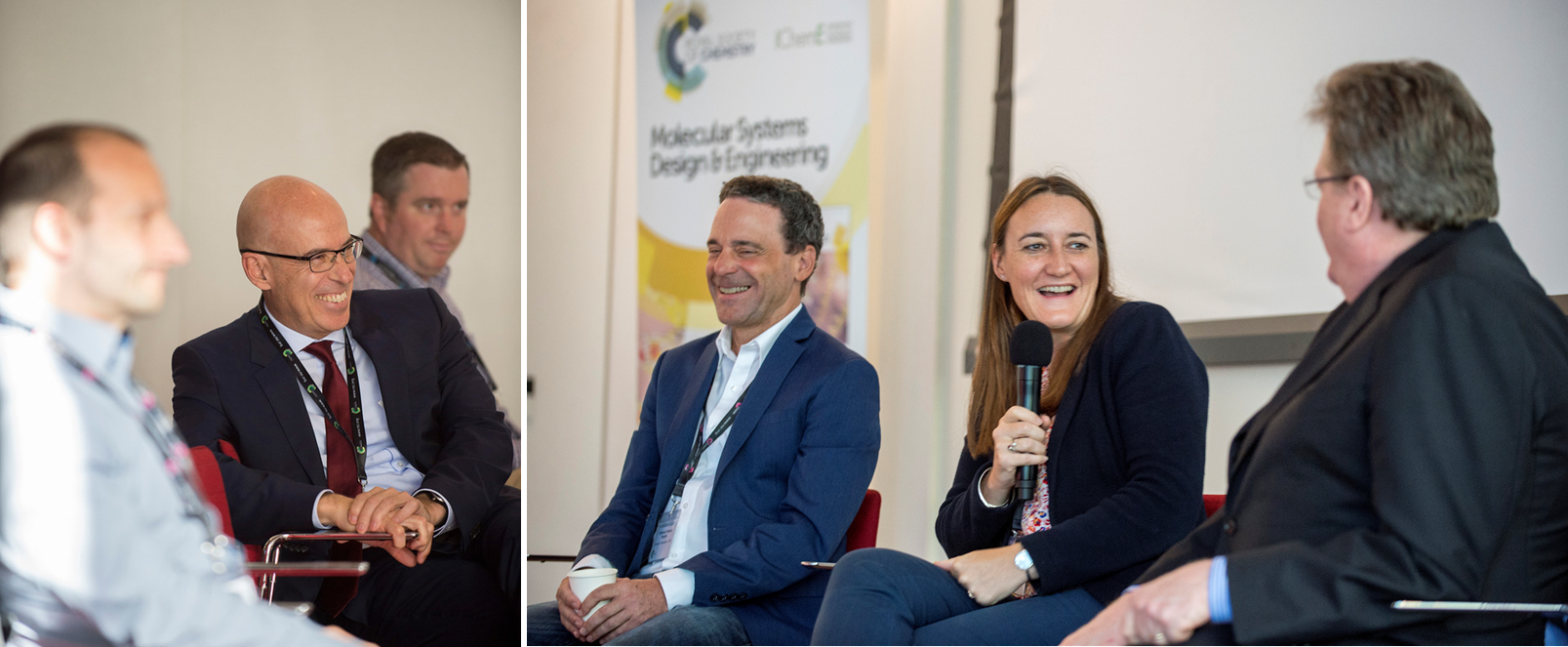
Left to right: Editorial Board Chair Juan de Pablo and Board Members Patrick Stayton and Claire Adjiman join IME Director Matthew Tirrell for a panel discussion at the Frontiers of Molecular Engineering Symposium on September 27 2018. (Photo credit: Randy Belice for the University of Chicago.) © Institute for Molecular Engineering at the University of Chicago
Cutting-edge research
Poornima Padmanabhan is an Assistant Professor of Chemical Engineering at the Rochester Institute of Technology, and her paper on gravitational collapse of colloidal gels was featured on the cover of Soft Matter earlier this year. Emphasizing the interdisciplinarity of the emerging molecular engineering field, she said she attended the event to “learn about the cutting-edge science and get new ideas for my research.” Frontiers of Molecular Engineering initiated in-depth discussions of critical issues that intersect with this new field of scientific study. Presentations focused primarily on fundamental materials science, with an emphasis on global challenges in health care and the environment.
On the health care side, Sarah Heilshorn of Stanford, who also serves on the Editorial Board of Biomaterials Science, covered new developments in stem cell transplantation. John Rogers of Northwestern University discussed bio-resorbable implants and the development of water-soluble transient electronics. Jeffrey Hubbell, Eugene Bell Professor of Tissue Engineering at IME, studies cancer immunotherapy, or ways to use the body’s immune system to find and fight cancer, and highlighted innovations in drug delivery systems for tumor suppression. Specifically, he discussed whether targeted therapies injected into the bloodstream could be as effective as treatments injected into tumors, with fewer adverse effects. Hubbell remarked, “We found that if we use targeted drugs, we have just as much efficacy, with less toxicity.” MSDE Editorial Board Member Pat Stayton discussed his group’s work on molecular engineering of macromolecular therapeutics.
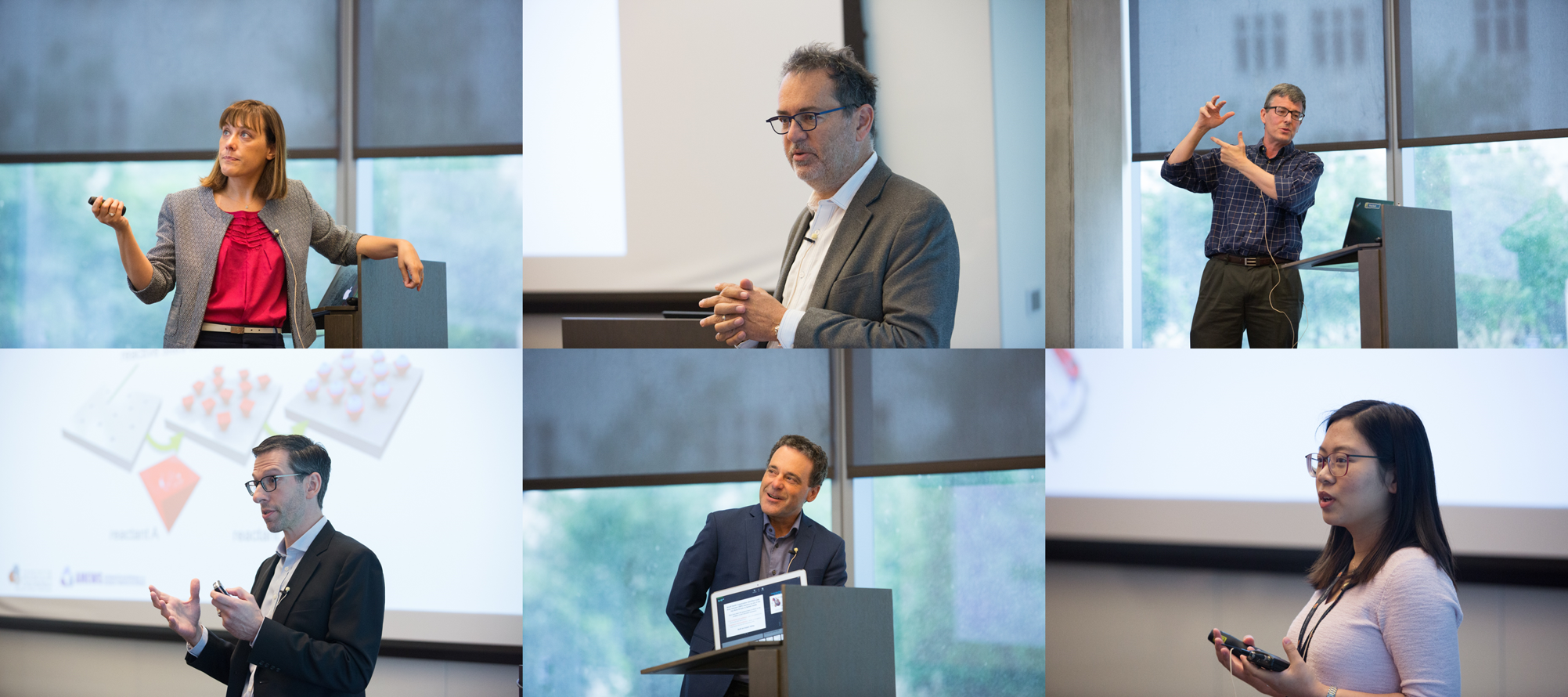
Invited speakers Sarah Heilshorn, Jeffrey Hubell, John Rogers, Seth Darling, Patrick Stayton, and Chong Liu. (Photo credit: Randy Belice for the University of Chicago.) © Institute for Molecular Engineering at the University of Chicago.
Presentations on the environment included the work of Argonne National Laboratory’s Seth Darling on water technologies with functionalities ranging from energy transduction to pollution mitigation. Chong Liu, Assistant Professor at IME, also presented her research on water, which focuses on materials for electrochemical resource mining; this work is applicable to, for example, uranium extraction from seawater or heavy metals recovery from wastewater. During the “Molecular Engineering for Energy Research” session, Chaired by Boeing-Martin Professor of Chemical Engineering and Professor of Chemistry at the University of Washington and MSDE Editorial Board Member Samson Jenekhe, Christine Luscombe discussed her research on conducting polymers for wearable electronics. Christine, who is the Campbell Career Development Endowed Professor in the Department of Materials Science and Engineering and part of the Clean Energy Institute at the University of Washington, explained her work on how to design and build organic electronics that can be stretched while retaining the optical properties for energy capture solutions.
During the session on “Molecular Engineering of Soft Biological Assemblies,” Lawrence Livermore National Laboratory’s Chris Spadaccini spoke on additive manufacturing. Chinedum Osuji, who recently moved from Yale University to become Eduardo D. Glandt Presidential Professor in Chemical and Biomolecular Engineering at the University of Pennsylvania, presented self-assembled polymers and molecular materials with bespoke textures. MSDE Board Member Luke Connal from Australian National University presented his research using enzymes as the inspiration for designing and engineering catalysts.
Poster session and prizes
Conference programming also featured a poster session with work from more than 40 researchers from across the globe; held in the modern and spacious atrium of the IME, the poster session was an opportunity for attendees to showcase and discuss their research with one another and get to know their peers and seek advice from leading experts. From the myriad engaging discussions, attendees learned from one another and surely to come are many future collaborations and continued friendships. Vivek Sharma, an Assistant Professor of Chemical Engineering at the University of Illinois at Chicago, is interested in soft matter interfaces and rheology, the connection between the macroscopic behavior & applications and the physicochemical properties of the underlying molecular/macromolecular species. He was drawn to the meeting by the opportunity to attend cutting-edge research presentations by leading researchers while simultaneously witnessing how the molecular systems engineering approach is already impacting diverse scientific disciplines and quests.
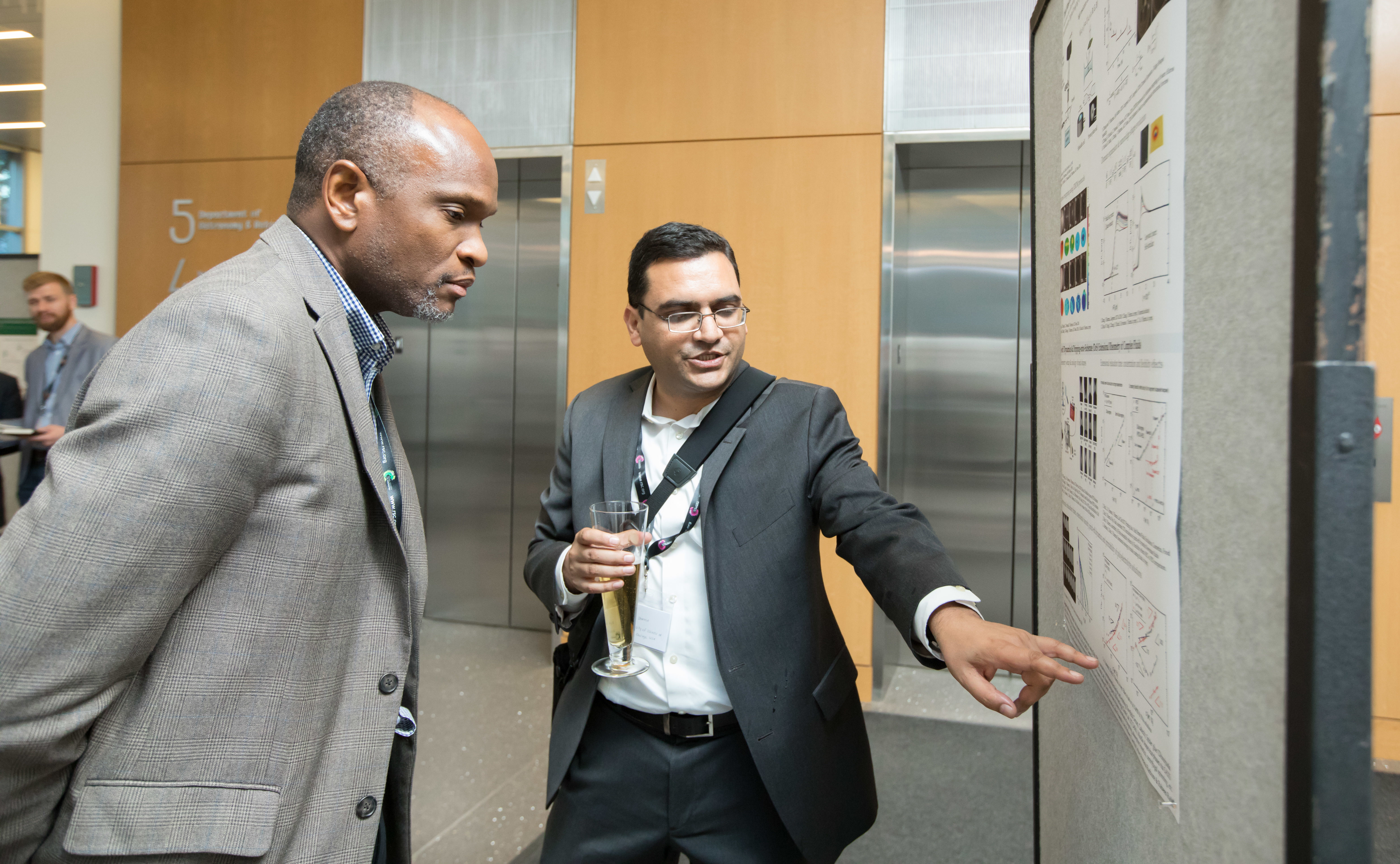
Vivek Sharma discusses his research in soft matter and rheology with Chinedum Osuji during the poster session at the Frontiers of Molecular Engineering Symposium at the Institute for Molecular Engineering on September 27, 2018. (Photo credit: Anne Ryan) © Institute for Molecular Engineering at the University of Chicago.
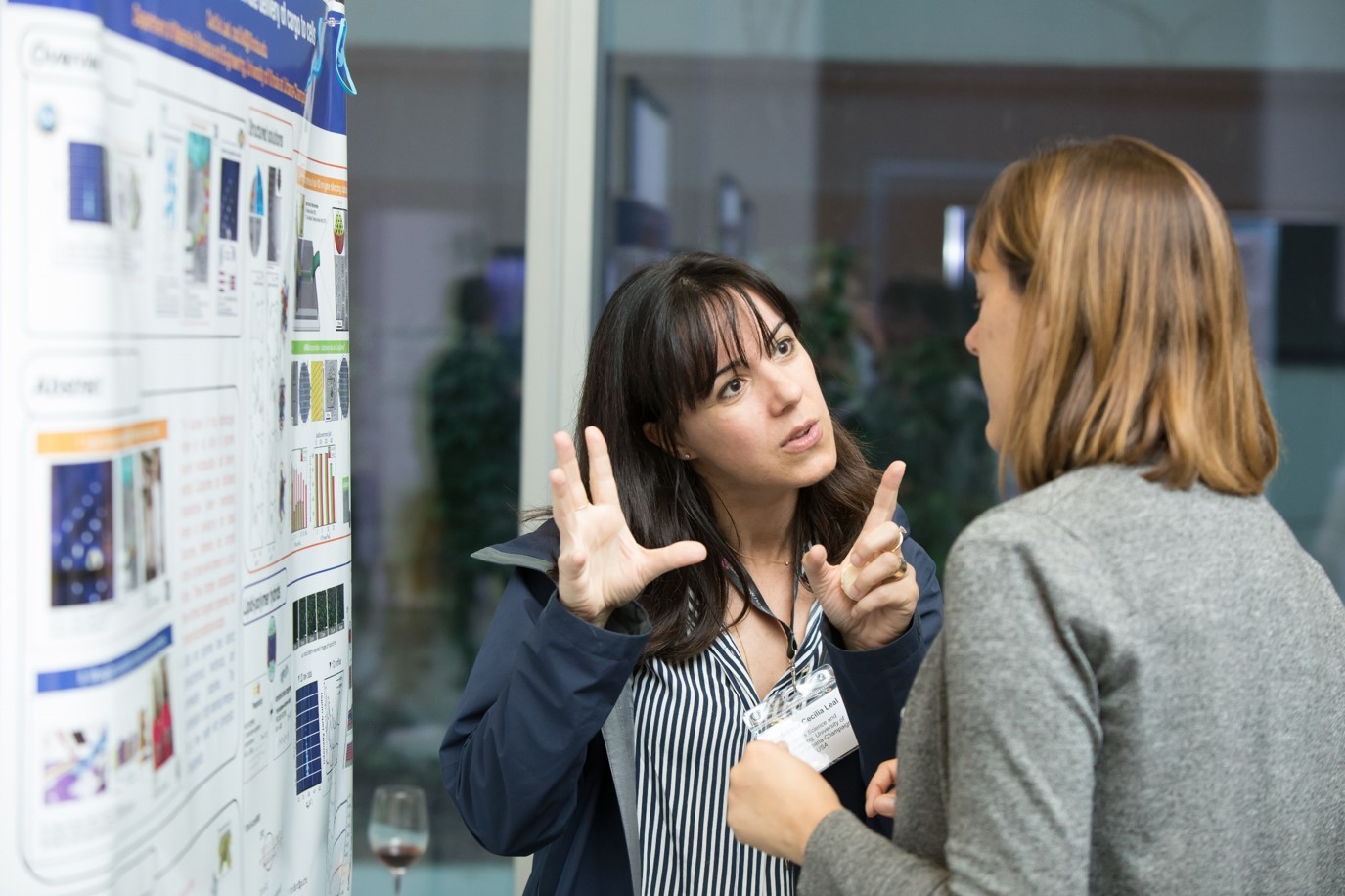
Cecilia Leal discusses her research on microfluidic synthesis of cubosomes and cuboplexes with Sarah Heilshorn at the Frontiers of Molecular Engineering Symposium on September 27 2018. (Photo credit: Anne Ryan) © Institute for Molecular Engineering at the University of Chicago
Cecilia Leal is an Assistant Professor of Materials Science at the University of Illinois at Urbana-Champaign, studying cubosomes. She presented her research on microfluidic synthesis of cubosomes and cuboplexes, loaded with nucleic acid. She said the best part of the meeting was that there were plenty of opportunities to chat with colleagues and friends.
“The best part of the meeting was that there were plenty of opportunities to chat with colleagues and friends.”
On day two, three students each were recognized for their outstanding posters and received a $100 cash prize from MSDE . Ashley Guo, a fourth-year student at IME, was honored for her poster, “Understanding nucleosome dynamics using diffusion maps.” James Crawford from the Colorado School of Mines was recognized for his outstanding poster on “Deoxygenation of Unsaturated Linoleic Acid to Heptadecane over Zeolite Supported Pt/ZIF-67 Catalysts” and Hao Yanfrom Stanford University received a prize for his poster “Diamond meets molecules: Scientific opportunities with diamondoids.”
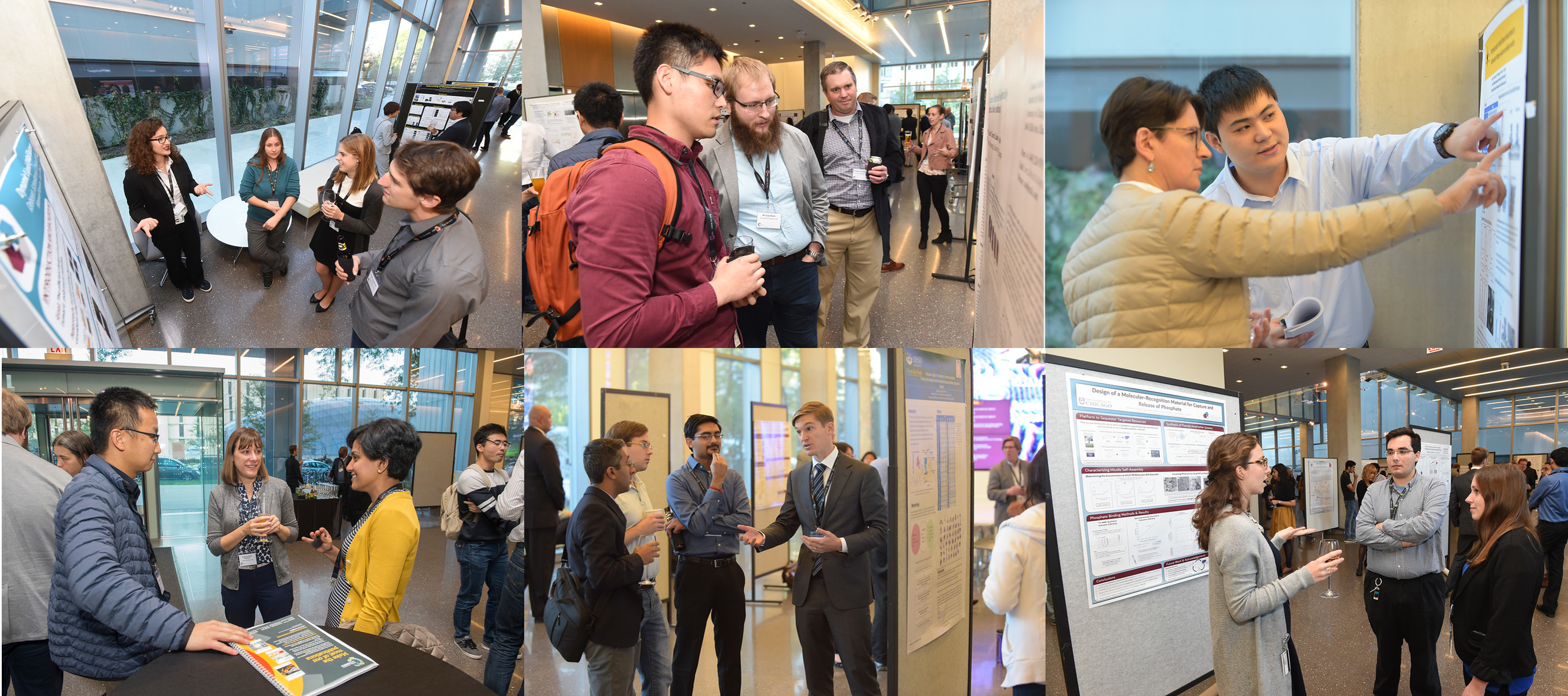
Highlights from the poster session and reception held in the atrium of the IME during the Frontiers of Molecular Engineering symposium on September 27 2018. (Photo credit: Randy Belice for the University of Chicago.) © Institute for Molecular Engineering at the University of Chicago
The Emerging Investigator Award
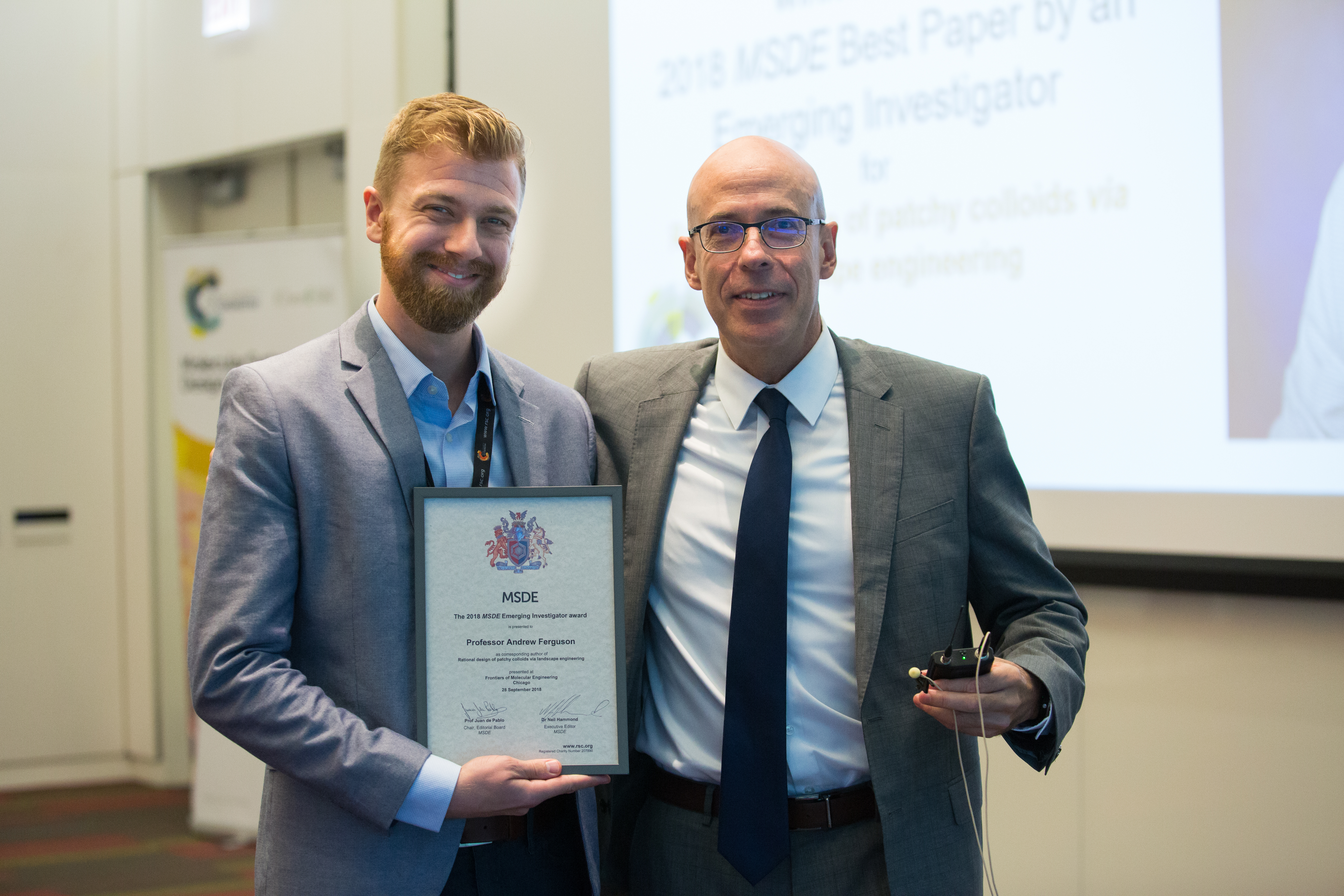
Prof. Juan de Pablo (at right) presented the first MSDE Emerging Investigator Award to Prof. Andrew Ferguson. (Photo credit: Randy Belice for the University of Chicago.) © Institute for Molecular Engineering at the University of Chicago
The second day also included the presentation of MSDE’s inaugural prize for best emerging investigator paper to Andrew Ferguson, Associate Professor of Molecular Engineering at IME. Ferguson was honored for his paper “Rational design of patchy colloids via landscape engineering.” The paper was part of athemed issue, which features work that showcases molecular engineering approaches from leading scientists in the earlier stages of their independent research careers. The 2018 Molecular Systems Design & Engineering Emerging Investigators were individually nominated by members of the journal Editorial and Advisory Boards in recognition of their potential to influence future directions in the field. The Board has been so impressed with Andrew that he was asked to join them, and is now one of the newest Editorial Board Members of MSDE.
Recognizing an emerging field
Matthew Tirrell, dean and founding Pritzker director of IME, said, “This conference demonstrates how the Institute for Molecular Engineering and the University of Chicago have become the epicenter of the emerging field of molecular engineering. This is where world-class researchers from across disciplines come to discuss advancements and promising research in the field.”
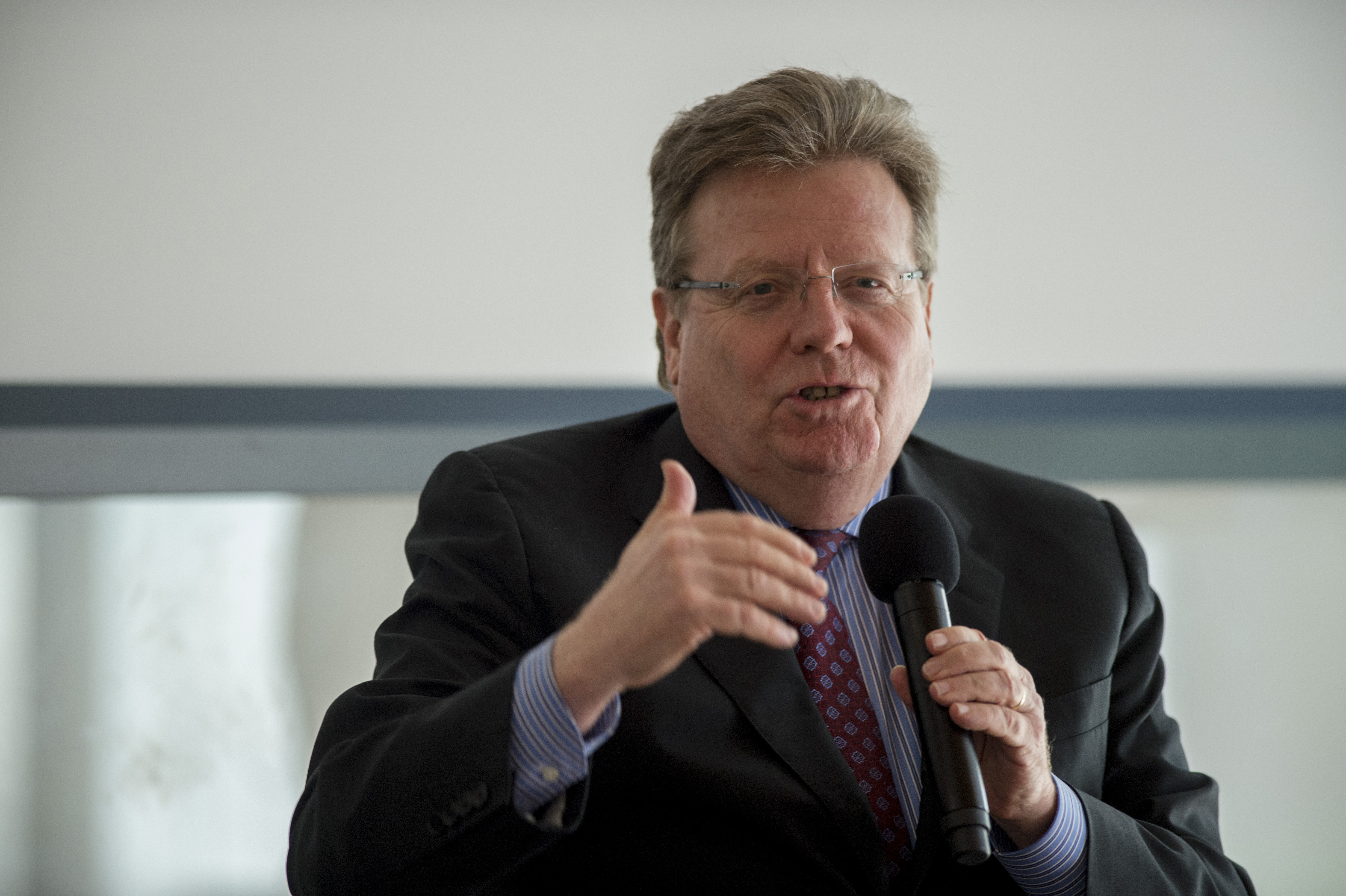
Matthew Tirrell, Director of the IME. (Photo credit: Randy Belice for the University of Chicago.) © Institute for Molecular Engineering at the University of Chicago.
Ryan Shafranek, a fourth-year chemistry PhD student from the University of Washington in attendance, summed up the symposium this way: “It was an informative and promising conference for the growing community surrounding molecular-level design.”
“This is where world-class researchers from across disciplines come to discuss advancements and promising research in the field.”
Frontiers of Molecular Engineering was co-organized by the Royal Society of Chemistry and the Institute for Molecular Engineering at the University of Chicago sponsored by Molecular Systems Design & Engineering, the Institution of Chemical Engineers, and the National Science Foundation. This article has been enhanced with adapted content from an original report, courtesy of theInstitute for Molecular Engineering at the University of Chicago.











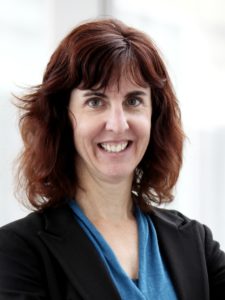
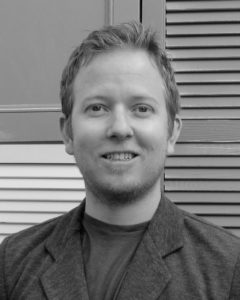
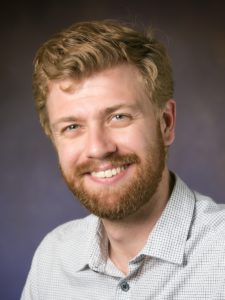
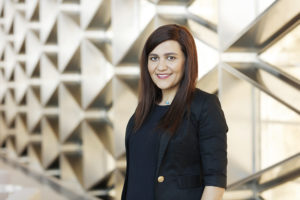
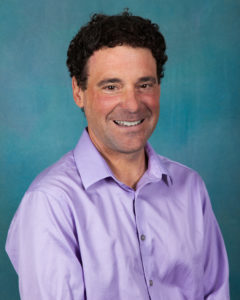 Patrick Stayton serves as Distinguished Career Professor in the Department of Bioengineering at the University of Washington. He is the founding Director of the Institute for Molecular Engineering and Sciences.
Patrick Stayton serves as Distinguished Career Professor in the Department of Bioengineering at the University of Washington. He is the founding Director of the Institute for Molecular Engineering and Sciences.